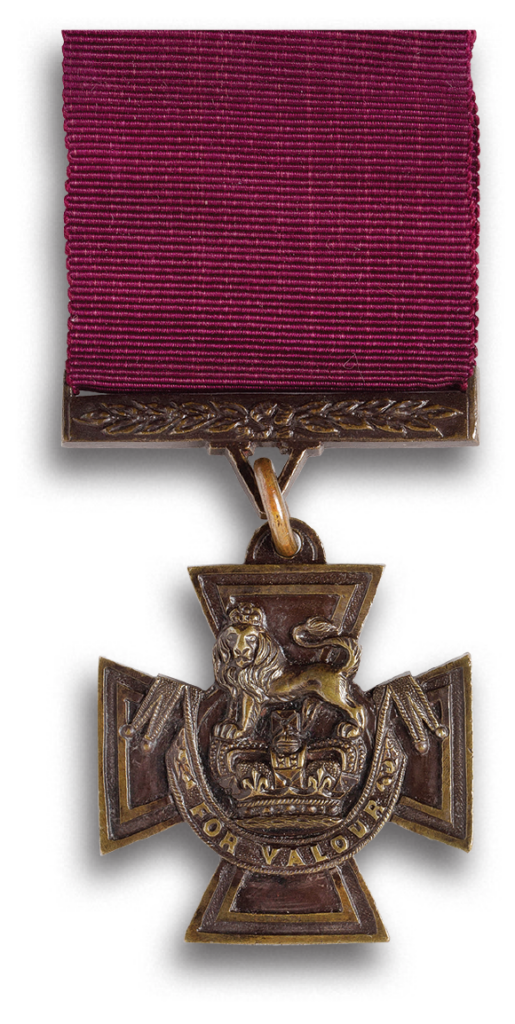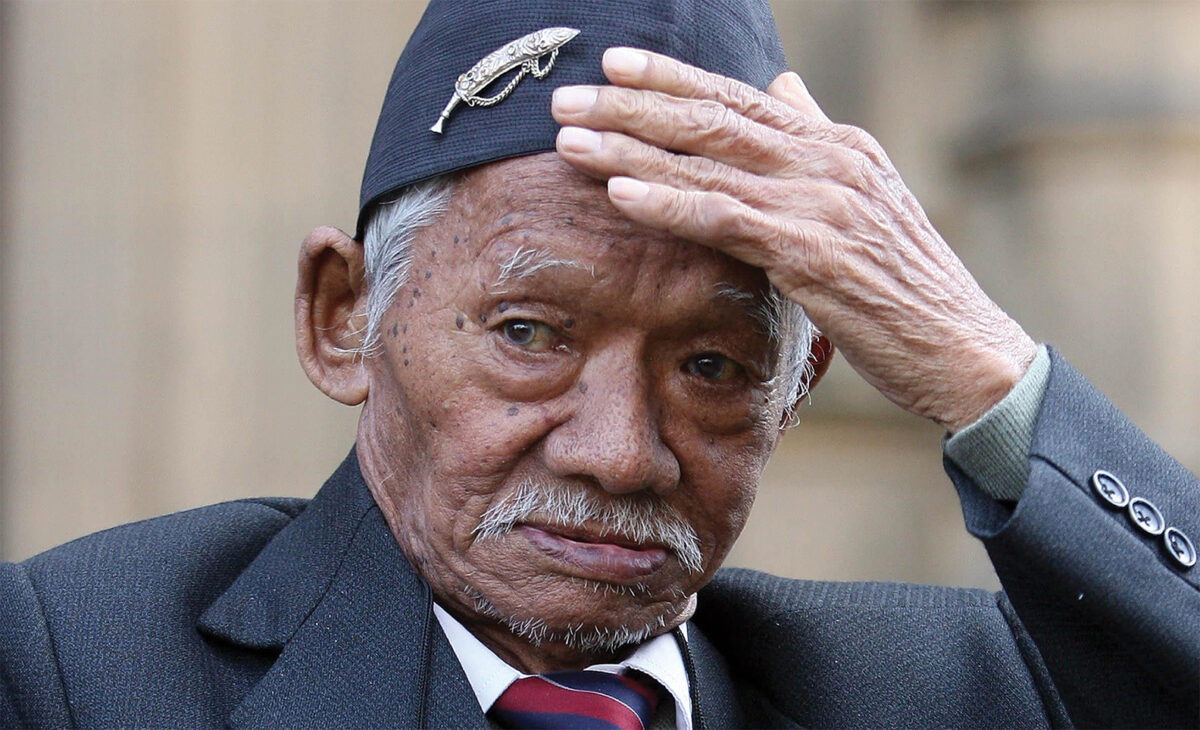In the darkness, despite having lost the fingers of his right hand and suffered severe shrapnel wounds, Gurkha Rifleman Lachhiman Gurung kept working his bolt-action rifle with his left hand as Japanese repeatedly attacked his position. When morning dawned, the area around his post was littered with the bodies of enemy combatants.

Against all odds Gurung had held his ground and survived.
“I had to fight,” the determined Gurkha later said. “I felt I was going to die anyway, so I might as well die standing on my feet.”
Born on Dec. 30, 1917, in Dahakhani, Nepal, 4-foot-11-inch Gurung joined the British Indian army in December 1940. The 23-year-old was assigned as a rifleman to the 4th Battalion, 8th Gurkha Rifle Regiment. Dating from 1815, the vaunted Gurkha Rifles was initially part of Britain’s East India Co. and still exists today, comprising young men from the hills of Nepal chosen after a grueling selection process.
In May 1945 the British crossed the Irrawaddy River in Burma (present-day Myanmar) and hit a Japanese force north of the Prome-Taungup road. By May 9 the Japanese were withdrawing, so the British positioned companies of Gurung’s 4th Battalion to block the enemy retreat. When the combatants collided, the Japanese quickly surrounded two companies of the 4th Gurkhas. Among those cut off were Gurung and two fellow Gurkhas in a trench 100 yards ahead of the main British line.
At 1:20 a.m. on May 13 more than 200 Japanese attacked their position.
Within moments an enemy grenade fell on the edge of the trench. Without hesitation Gurung hurled it back. When another grenade landed amid the trio, the diminutive Gurkha also tossed it back. He then reached for a third grenade just outside the trench. But before he could get rid of it, the grenade exploded, blowing off his fingers, shattering his right arm and inflicting shrapnel wounds to his face, torso and right leg.
By then his trench mates were also badly wounded and lay helpless.
Gurung was on his own.
Screaming at top volume, the Japanese rushed the position in waves. Loading and firing his rifle with his left hand, the wounded Gurung held them off, shouting back in defiance, “Come and fight a Gurkha!”
When the firing ceased, those sent to check on Gurung and his companions counted 87 enemy dead in the vicinity, 31 of whom lay directly in front of the lone Gurkha’s firing position. Had Gurung failed that night, his commanding officer noted, the battalion’s position “would have been completely dominated and turned.”
Only when the 4th Gurkhas were relieved on May 15 was Gurung evacuated to a hospital. That December, at the historic Red Fort in Delhi, Field Marshal Archibald Wavell, the viceroy and governor-general of India, personally awarded Gurung the Victoria Cross. Nepalese villagers from the Gurkha’s hometown bore his elderly father aloft for the 11-day journey to Delhi so he could attend the presentation ceremony.
Gurung had lost his right hand in the action as well as the use of his right eye. Regardless, he remained in the British Indian army and then the Indian army when that country gained independence in 1947. He eventually retired with the rank of havildar (sergeant) and returned to his village to work a small farm. In 2008, on appeal to the U.K. government as a veteran, he moved to England and settled in Hounslow, southwest of London. In November 2010, suffering from pneumonia, Gurung was admitted to London’s Charing Cross Hospital, where he died that December 12 at the venerable age of 92.
His actions a half century earlier had embodied the motto of the 4th Gurkhas: “Better to die than live as a coward.”
This story appeared in the Spring 2024 issue of Military History magazine.





